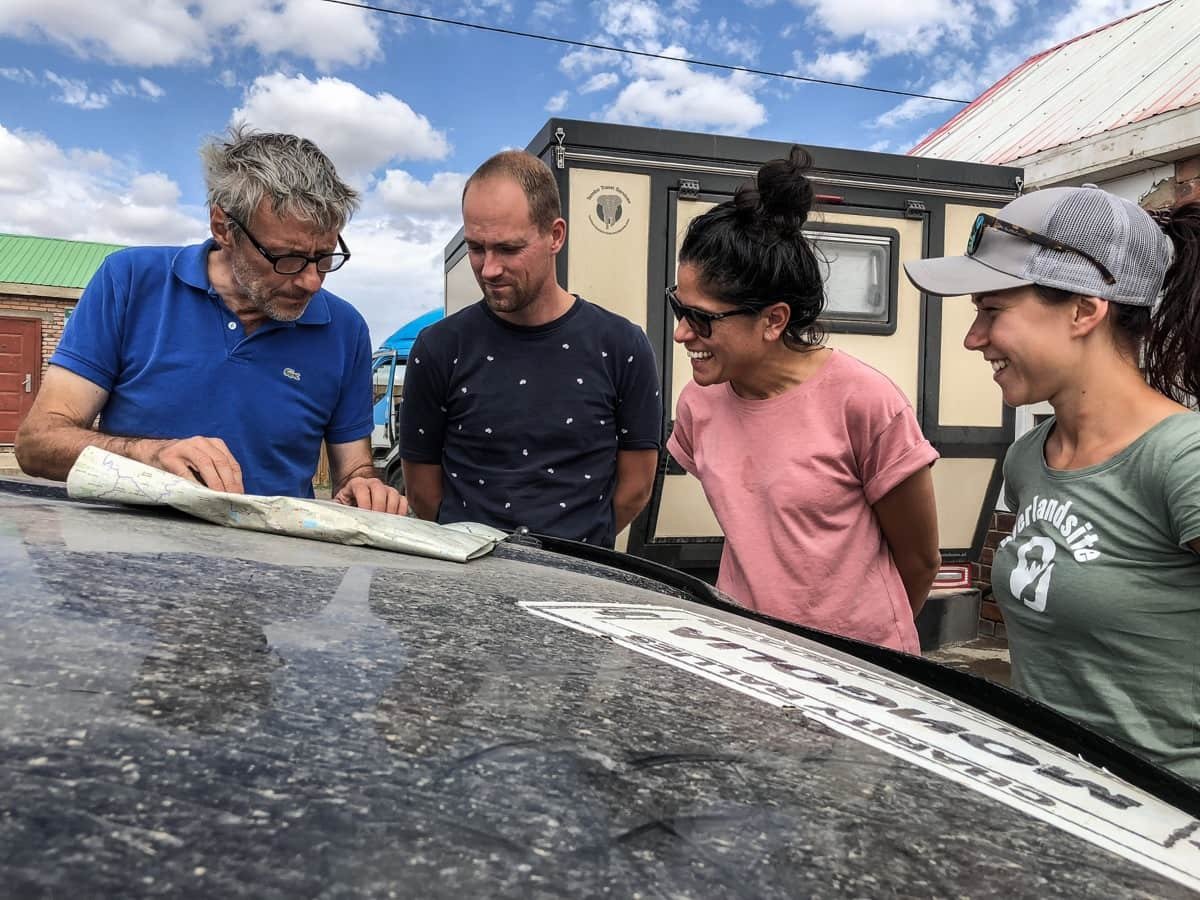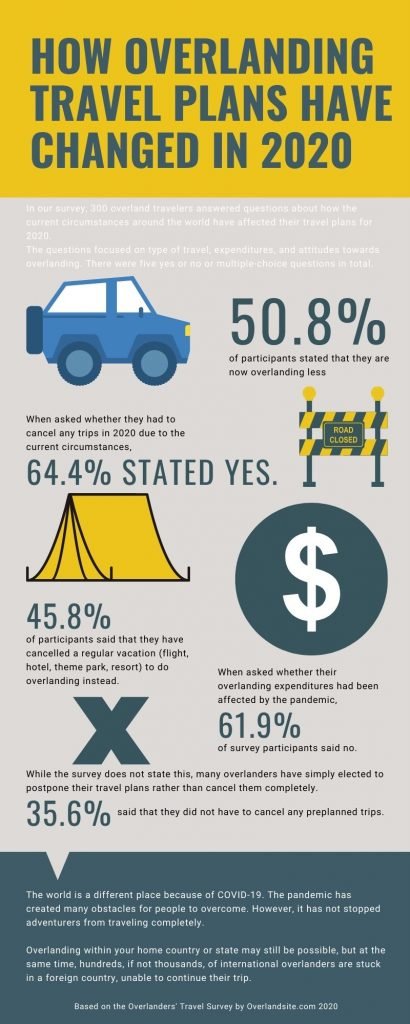The Coronavirus pandemic has altered the travel landscape, possibly for the long-term. Social distancing requirements now pose unique challenges for those wanting to explore new places and interact with others.
Scarce amenities, limited hotel staff, and other issues have forced travelers to adapt. These limitations, however, have opened up unique possibilities for the adventurous at heart.
Overlanding, a form of travel that centers on less-frequented trails off the beaten path, has begun to rise in popularity. Overlanding involves using off-road vehicles to explore areas one might otherwise not see on a conventional road trip.
Overlanders often enjoy camping and strive to be as self-sustained as possible for long stretches of time. These sorts of trips take weeks or even months to reach a predetermined location. Thus, the focus of overlanding is on the journey rather than the destination itself.
In our survey, 300 overland travelers answered questions about how COVID-19 has affected their travel plans for 2020.
The questions focused on type of travel, expenditures, and attitudes towards overlanding. There were five yes or no or multiple-choice questions in total.
We endeavored to find out relevant statistics among overlanders only, therefore only those survey participants were included who answered yes, when asked whether they were overlanding in some capacity before the Coronavirus pandemic.
Under normal circumstances, they were engaging in regular overlanding excursions, including either short or long trips.
Compared to previous years, were travelers doing more, less, or about the same amount of overlanding in 2020?
28.8% of participants said that they are overlanding more in 2020 than they were in previous years, and 20.3% said that they are doing about the same amount. 50.8% of participants stated that they are now doing less.
When asked whether they had to cancel any trips due to the COVID-19 pandemic, 64.4% stated yes.
However, while the survey does not state this, many overlanders have simply elected to postpone their travel plans rather than cancel them completely. 35.6% said that they did not have to cancel any preplanned trips.
According to the survey, 45.8% of participants said that they have canceled a regular vacation (flight, hotel, theme park, resort) to do overlanding instead.
This indicates that the Coronavirus pandemic has encouraged many people to explore alternate forms of travel instead of giving up on an adventurous excursion completely.
Moreover, despite the fact that these travelers would be meeting fewer people due to the social distancing requirements, they still decided to give overlanding a shot.
50.8% of those surveyed said that their vacation plans have not changed, and less than 4% said that they cancelled an overlanding trip and booked a regular vacation instead.
When asked whether their overlanding expenditures had been affected by the pandemic, 61.9% of survey participants said no, their plans had not changed. 22% said yes, they can not spend as much on overlanding gear or trips as they did before the pandemic.
Finally, 16.1% of participants stated that they were unsure whether or not the current situation had affected their expenditures.
The world is a different place because of COVID-19. The pandemic has created many obstacles for people to overcome. However, it has not stopped adventurers from traveling completely.
Overlanding within your home country or state may still be possible, but at the same time, hundreds, if not thousands, of international overlanders are stuck in a foreign country, unable to continue their trip.



